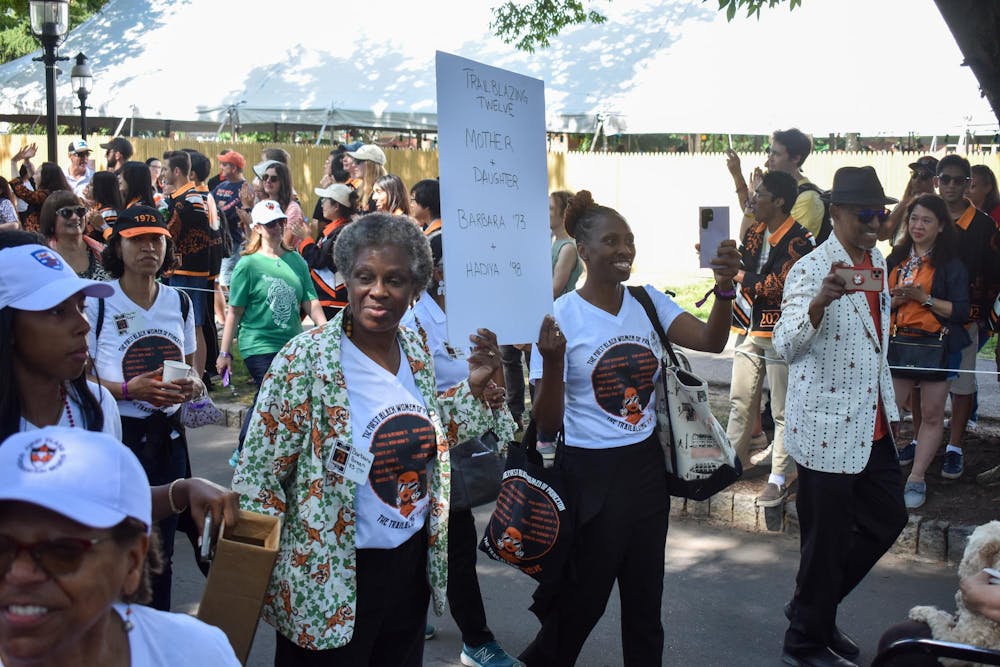Since affirmative action was overturned in June 2023, conversations about how to promote campus diversity and fairness in admissions have turned towards criticism of legacy admissions. Affirmative action and legacy admissions are often positioned as opposing forces — they are perceived as respective representations of diversity and tradition. Recently, columnist Sarah Park argued for the acceptability of legacy admissions on account of their ability to foster “intergenerational community” and noted a general negativity about legacy and legacy students themselves. This negativity exists for good reason: legacy admissions perpetuate privilege and have, historically largely benefitted wealthy, white students. But as time goes on, diversity is increasing within the legacy pool, despite the fact that it is still less diverse than our campus as a whole. No longer are all legacies stereotypical, privileged, white kids. As Princeton continues to diversify, legacy will too. If we end legacy now, we are prematurely eliminating the advantages that come from a more diverse intergenerational community.
Legacy admissions can undoubtedly be exclusionary, but as we consider the drawbacks of legacy, we should also consider its potential benefits. Legacy brings in students with unique historical knowledge about Princeton and greater initial insight into how the school should change in the future. They have the ability to see and illuminate the path towards that change. This insight is particularly special when it comes from legacy families of diverse backgrounds, who can provide firsthand accounts of how Princeton has changed, and stayed the same, in regards to diversity and inclusion. Intentionally removing these students from our campus community would eliminate the potential for growth that an evolving institution of legacy provides.
Though socioeconomic diversity is sparse among the children of Princeton graduates, diversity of race, religion, gender, and sexuality are all found in the modern pool of legacy applicants. This diversity is not only rapidly increasing, but is fairly recent: Princeton was integrated by three black men from the class of 1949, of whom only one graduated. That man, Robert Joseph Rivers, had three children who graduated in the classes of ’81, ’83, and ’86. While Princeton does not publish explicit data about legacy admissions, it’s likely that they were among, if not the first, black legacy students to graduate from Princeton. Black legacy at Princeton has only existed for about 40 years, and the small pool is presumably growing at approximately the same rate with which diversity of the student body grew after integration. Especially since the children of those who benefitted from the beginning of affirmative action in 1963 started applying in the nineties.
The continuing diversification of legacies means new benefits of legacy admissions. These legacies go further than “play[ing] a role in fostering the intergenerational community Princeton values so strongly,” as Park suggests. They have special knowledge of campus history, tradition, and culture. These students can help us learn from our past to create a better future. This is realized in an incredible lineage of black female Princetonians who truly embody the potential impact of diversifying legacy: Linda Blackburn ’71, Akira Bell ’95, and Samantha Johnson ’23. Blackburn was a member of Princeton’s first co-ed class, Bell and Johnson were, respectively, the first-ever second and third generation female Princetonians, of any race. These trailblazers have paved the way for countless Princetonians after them, and used their unique perspectives to make important contributions to our community. They have publicly discussed their shared hardships and the difficulties of being overlooked as Black female Princetonians, participated in initiatives to foster community among Princeton’s Black alumni, and advocated for continued inclusion on campus. These women used the unique experience of being a student from a marginalized identity on Princeton’s campus, to drive further change for future generations. Having that history memorialized through legacy admissions is an essential tool for understanding diversity and inclusion at Princeton. It is impossible to grow as a community without the perspective of those who experienced these challenges firsthand.
The reason why I was able to share the story of this incredible family, is that my parents were classmates of Bell, graduating in the class of 1995. Without my personal connection to this history, I probably would not have known their story. For my family, legacy has allowed us to have a more robust understanding of our shared experience as black Princetonians. Being both parents and alumni gives my mom and dad a unique perspective, which informs how they chose to give back to Princeton. Likewise, I draw from their past experiences in my attempts to change and improve our campus community.
We have yet to fully explore and experience the impact that diversity within the legacy pool can have on our campus community. The premature abolishment of legacy admissions ignores the potential impact of increasing diversity. Instead of just ending legacy, we should focus on diversity and institutional memory for change-making. Undeniably, legacy’s primary purpose has been exclusion and elitism, but changing who is a legacy student also changes the nature of legacy. We should ensure that continuing to include legacy students doesn’t necessarily prevent a student body that reflects the diversity of this country. But we should also recognize that legacies can contribute something unique, not just to ‘preserve‘ Princeton’s traditions, as is often argued, but also to change them. This necessary change can be catalyzed by students who have a robust understanding of past and present campus issues. Time to evolve with each new class will allow the legacy system to realize its potential, driving Princeton forward, and encouraging our community to continue changing with our times, and for the better.
Ava Johnson is a first year columnist from Washington D.C. She can be reached at aj9432@princeton.edu or on instagram at _ava.c.johnson









